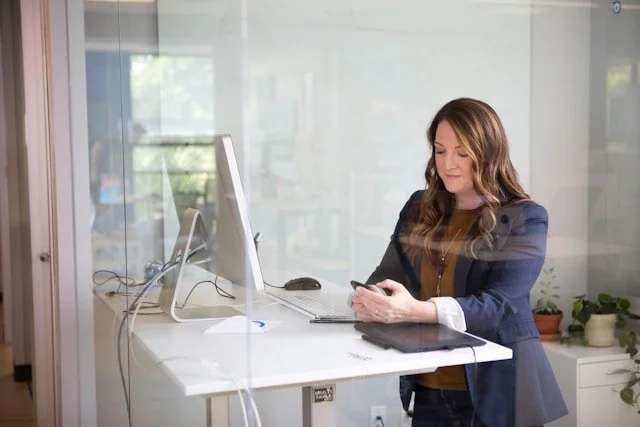Working Women and the Guilt Gap: Why Balance Isn’t Just About Scheduling
Do you ever get that nagging feeling when you’re crushing it at work, but you’re also missing a dinner with the girls? Or what about when you’re sinking into the couch for a relaxing Sunday, but you have a big project deadline looming?
That nagging feeling would be the guilt gap speaking. If you’re a woman trying to juggle the demands of a successful career, a thriving social life, and staying on top of daily adult responsibilities, you know exactly what this feeling is.
We’ve been sold this idea that having it all means doing it all. Work-life balance means being better at time management. Get a planner, organize our schedules, wake up early, and then suddenly it all feels great, right? Well, not quite.
The Problem Isn’t Your Calendar
The real problem with the guilt gap isn’t about having too much on your plate. It’s about the impossibly high standards we all hold ourselves to in all aspects of life.
We’re expected to be the best friend who’s always available while successfully taking on every work task. We need to take care of everything in the household and still find time to have hobbies and exercise regularly. Somehow, this all needs to be done without breaking a sweat or ever showing a sign of weakness.
Working late leaves you feeling guilty about missing social activities. Taking time for yourself makes you feel like you’re not as committed or ambitious as you could be. This mental warfare with yourself becomes exhausting.
Why Women Experience Guilt Differently
If we’re being honest, the guilt gap just hits women differently. We still tend to carry this underlying expectation that we should be naturally good at everything we do. In trying to be multiple versions of ourselves at once and having something slip, we’re left with this feeling of guilt.
The narrative isn’t just that “I missed a deadline.” It becomes a deeper concern that “I’m not good at this.”
No offense to the men out there, but our male colleagues might leave work at the end of the day without a second thought. When we leave work at 6 pm, we’re left wondering if people think we’re not committed. They can miss a social event and not lose sleep, but we’re worried about disappointing everyone.
The bar is just set differently, even if no one says it outright.
Give Permission to Be Imperfect
The best thing you can do for yourself is to let go of the idea that everything needs to be done perfectly. You're never going to be able to balance everything without fail.
It’s ok if you have some days where work demands take priority and others where your personal life wins. You don’t have to optimize every hour of your schedule. Accept the idea that most days are going to be messier and more chaotic than you’d like.
You’re allowed to be really into your work sometimes and then want to skip a networking event to binge-watch the latest Netflix show. You’re allowed to be “off” because you’re tired from the day before. Give yourself permission to be human.
Moving Forward
Work-life balance isn’t a goal you should be trying to achieve. Instead, you want to focus on being able to constantly recalibrate based on what matters most to you in any given moment. Not what you think others value, but what you currently find important.
Your guilt may not go away completely, but you should be able to find a way forward where it isn’t affecting your quality of life. Women’s counseling can help you work on the guilt gap and figure out what balance truly looks like for you. Reach out to schedule a consultation.
About the Author
Shanni Liang, LCSW, is an Asian American therapist and the founder of Therapy with Shanni. She is dedicated to empowering deep thinkers, overachievers, and rebels to find love in dating and relationships, take up space, and achieve balance in their careers. As a recovered perfectionist, Shanni specializes in relational dynamics, career fulfillment, and trauma processing. Her extensive clinical background spans diverse settings, including crisis counseling, school social work, and various mental health clinics. Connect with her for flexible, personalized therapy.



